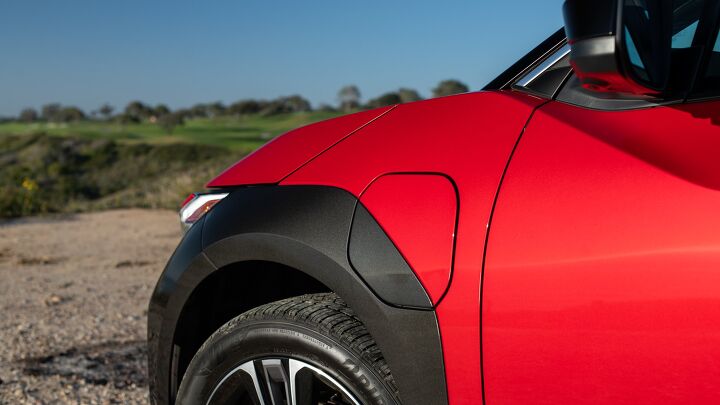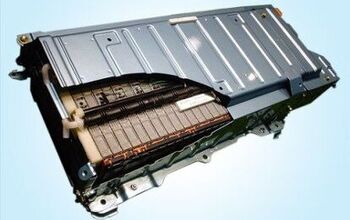Toyota's EV Battery Production Efforts are Looking Up

Toyota may be pushing hard toward more diverse propulsion options instead of solely focusing on EVs, but that doesn’t mean it’s not looking for ways to make headway on electrification. The Japanese auto giant recently announced its acquisition of Primearth EV Energy from Panasonic, which it said would give it a significant boost toward EV battery mass production.
The company already owned 60 percent of Primearth, starting with a 40 percent stake when it was founded in 1996, climbing to 60 percent in 2005. In 2010, Toyota grabbed another 20.5 percent, so this recent announcement only really covers 19.5 percent of Primearth. Some of the automaker’s other partially-owned companies already produce hybrid batteries, and some build PHEV and EV batteries.
Toyota has announced a next-generation battery that it said can deliver up to 500 miles of range. It’s expected to roll the first market-ready units in 2026, and it noted that they would support super-fast charging, with times as low as 20 minutes. That could coincide with a next-gen bZ4X or the expected bZ small crossover’s release.
By 2028, Toyota expects to offer EV batteries with more than 621 miles of range and the same 20-minute charging time. They are also expected to cost 10 percent less than the batteries released in 2026.
Toyota has long promised upgraded batteries, but the automaker has so far not hit its targets, pushing solid-state batteries out as far as 2030. In the meantime, its cautious approach to EVs looks to be paying off, as other automakers have grappled with wavering demand and high costs.
[Image: Toyota]
Become a TTAC insider. Get the latest news, features, TTAC takes, and everything else that gets to the truth about cars first by subscribing to our newsletter.

Chris grew up in, under, and around cars, but took the long way around to becoming an automotive writer. After a career in technology consulting and a trip through business school, Chris began writing about the automotive industry as a way to reconnect with his passion and get behind the wheel of a new car every week. He focuses on taking complex industry stories and making them digestible by any reader. Just don’t expect him to stay away from high-mileage Porsches.
More by Chris Teague
Latest Car Reviews
Read moreLatest Product Reviews
Read moreRecent Comments
- Redapple2 jeffbut they dont want to ... their pick up is 4th behind ford/ram, Toyota. GM has the Best engineers in the world. More truck profit than the other 3. Silverado + Sierra+ Tahoe + Yukon sales = 2x ford total @ $15,000 profit per. Tons o $ to invest in the BEST truck. No. They make crap. Garbage. Evil gm Vampire
- Rishabh Ive actually seen the one unit you mentioned, driving around in gurugram once. And thats why i got curious to know more about how many they sold. Seems like i saw the only one!
- Amy I owned this exact car from 16 until 19 (1990 to 1993) I miss this car immensely and am on the search to own it again, although it looks like my search may be in vane. It was affectionatly dubbed, " The Dragon Wagon," and hauled many a teenager around the city of Charlotte, NC. For me, it was dependable and trustworthy. I was able to do much of the maintenance myself until I was struck by lightning and a month later the battery exploded. My parents did have the entire electrical system redone and he was back to new. I hope to find one in the near future and make it my every day driver. I'm a dreamer.
- Jeff Overall I prefer the 59 GM cars to the 58s because of less chrome but I have a new appreciation of the 58 Cadillac Eldorados after reading this series. I use to not like the 58 Eldorados but I now don't mind them. Overall I prefer the 55-57s GMs over most of the 58-60s GMs. For the most part I like the 61 GMs. Chryslers I like the 57 and 58s. Fords I liked the 55 thru 57s but the 58s and 59s not as much with the exception of Mercury which I for the most part like all those. As the 60s progressed the tail fins started to go away and the amount of chrome was reduced. More understated.
- Theflyersfan Nissan could have the best auto lineup of any carmaker (they don't), but until they improve one major issue, the best cars out there won't matter. That is the dealership experience. Year after year in multiple customer service surveys from groups like JD Power and CR, Nissan frequency scrapes the bottom. Personally, I really like the never seen new Z, but after having several truly awful Nissan dealer experiences, my shadow will never darken a Nissan showroom. I'm painting with broad strokes here, but maybe it is so ingrained in their culture to try to take advantage of people who might not be savvy enough in the buying experience that they by default treat everyone like idiots and saps. All of this has to be frustrating to Nissan HQ as they are improving their lineup but their dealers drag them down.


































Comments
Join the conversation
Toyota is likely to go full Hybrid long before full EV (if ever) and that requires a lot of batteries so they need the capacity. The promised 500 mile range isn't the biggie, it's the 20 minute recharge time. That might mean you could add enough charge for 200-300 miles in 10 minutes which would end one of the real world problems.
Batteries don't provide range - cars do.
That mythical 621-mile range is 1000 km WLTP, which is more like 520 miles EPA... but what size car do you get for that, and I'll guarantee it's not real-world.
Toyota isn't sincere about EVs, nor tightening lug nuts.